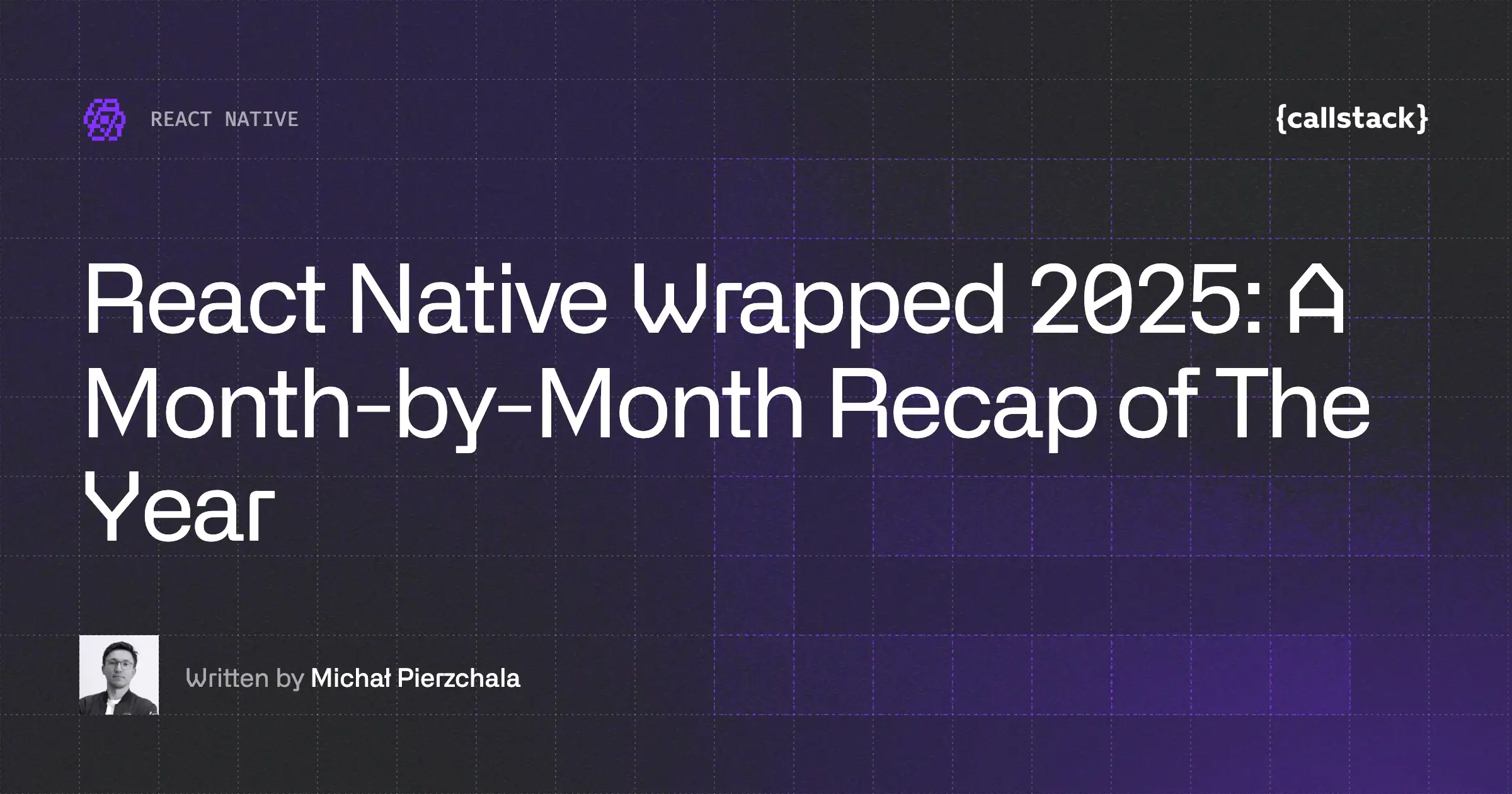Ever wondered why TypeScript feels so seamless with your favorite JavaScript libraries? It’s not just luck—it’s Definitely Typed, a project that plays a crucial role in enabling TypeScript developers to use JavaScript libraries with type safety and autocompletion.
In this Coffee Talk episode of React Universe On Air, Mike has invited Boris Yankov, the repository’s creator and long-time maintainer, to share the story of Definitely Typed. They discuss how this open-source repository became the backbone of type safety in TypeScript.
The full story of Definitely Typed
Here’s what you can expect from this episode:
- The early days of TypeScript—Boris takes us back to 2012, just after TypeScript's release. He discusses the challenges of building the first type definitions and how early contributions helped lay the foundation for the TypeScript ecosystem we know today.
- From passion project to Open Source giant—What began as a personal project quickly grew into a community-driven repository with thousands of contributors. Boris explains how automation and Microsoft’s support helped scale Definitely Typed from a niche tool to an open-source giant.
- TypeScript vs. Flow Mike and Boris discuss why TypeScript's pragmatic approach to type safety and strong backing from Microsoft led to its success over Flow. They talk about how Definitely Typed contributed to TypeScript's widespread adoption by offering robust type definitions for JavaScript libraries, establishing its place as the go-to choice for typed JavaScript.
- How Definitely Typed works—Boris provides a technical overview of how Definitely Typed integrates with NPM and TypeScript’s tooling, making type definitions accessible through the @types packages. He explains the automated publishing process and how contributors' updates are published to NPM, ensuring developers rarely encounter issues with type definitions in their projects.
- The open-source dynamics—Boris shares the human side of open source, discussing the project's organic collaboration model and why it doesn’t need a strict leadership structure. He also explains how new contributors can get started.
- Favorite TypeScript features—To wrap up, Boris and Mike share their favorite TypeScript features, such as Discriminated Unions, and offer development tips for working with type definitions.
Learn more about Definitely Typed
- Mike Grabowski on X, BlueSky, and GitHub
- Boris Yankov on X, BlueSky, and GitHub
- Definitely Typed homepage
- Definitely Typed repo
Learn more about Open Source

React Native Wrapped 2025: A Month-by-Month Recap of The Year
The first edition of React Native Wrapped looks back at the year RN turned 10 and the ecosystem doubled down on the New Architecture. It provides a month-by-month record of 2025, covering major framework releases, the Legacy Architecture freeze, React 19 integration, and notable developments across tooling, performance, styling, native modules, Expo, and platform adoption.

Building v0 iOS and Fixing React Native Along the Way
Lorem ipsum dolor sit amet, consectetur adipiscing elit. Suspendisse varius enim in eros elementum tristique. Duis cursus, mi quis viverra ornare, eros dolor interdum nulla, ut commodo diam libero vitae erat. Aenean faucibus nibh et justo cursus id rutrum lorem imperdiet. Nunc ut sem vitae risus tristique posuere.

Shipping iOS Live Activities with React: The Voltra Story
Lorem ipsum dolor sit amet, consectetur adipiscing elit. Suspendisse varius enim in eros elementum tristique. Duis cursus, mi quis viverra ornare, eros dolor interdum nulla, ut commodo diam libero vitae erat. Aenean faucibus nibh et justo cursus id rutrum lorem imperdiet. Nunc ut sem vitae risus tristique posuere.

Scaling React Native at Zalando: How Brownfield Migration Paid Off
Lorem ipsum dolor sit amet, consectetur adipiscing elit. Suspendisse varius enim in eros elementum tristique. Duis cursus, mi quis viverra ornare, eros dolor interdum nulla, ut commodo diam libero vitae erat. Aenean faucibus nibh et justo cursus id rutrum lorem imperdiet. Nunc ut sem vitae risus tristique posuere.



